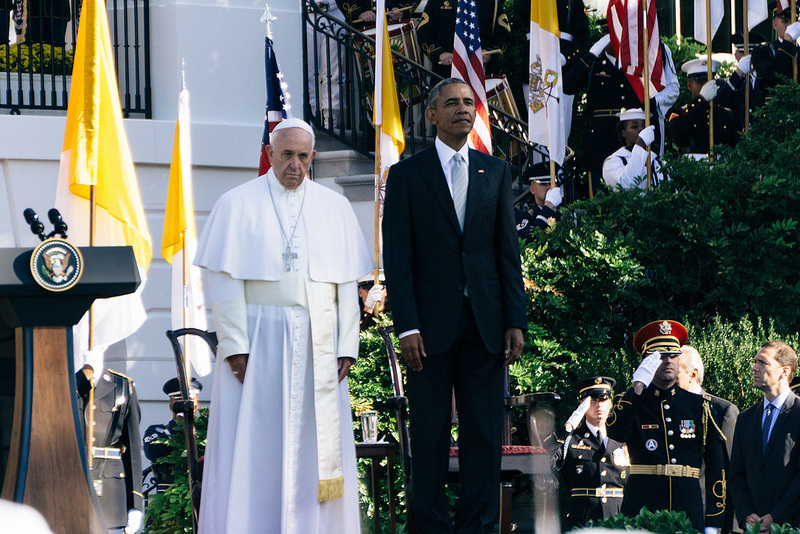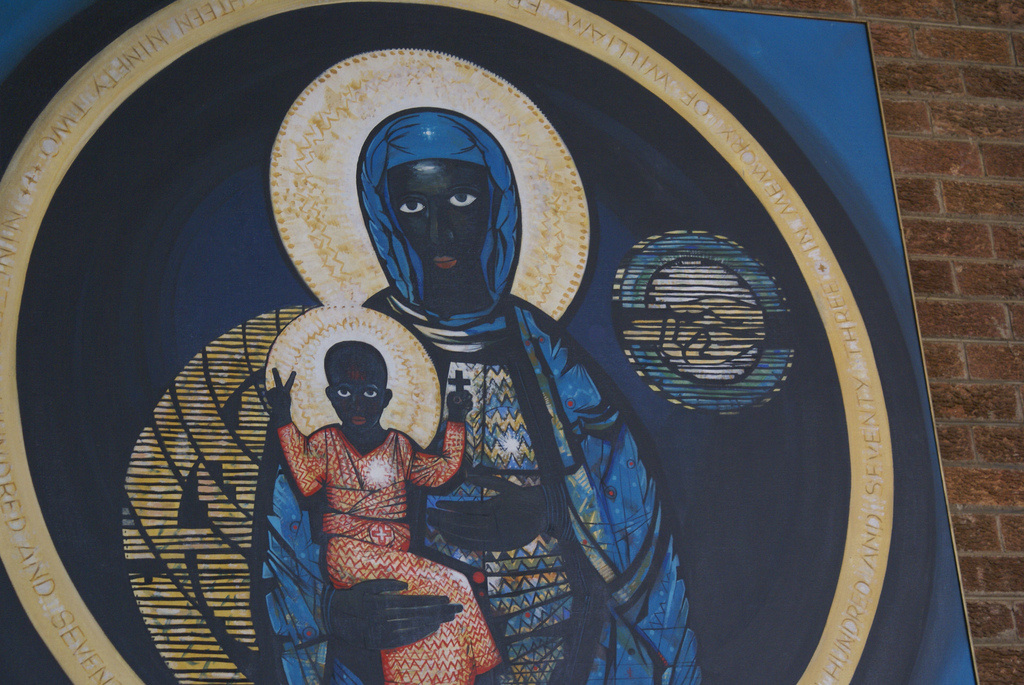There is nothing very original about this theory whatsoever: and most importantly, about its practical application through the centuries: it's all about power: the power to dominate: especially, the power to dominate women and the Divine Feminine: our innate human tendency towards partnership, cooperation, and kindness (essential feminine qualities)... Burning women at the stake for "being witches" -- perhaps millions of women -- is just one example of the near-absolute pursuit and lust for domination and power that has characterized much of male / religious life, theology, and practice: in each of the Abrahamic religions...
Of course, the desire for domination runs right-smack-dab into the person of Yeshua, the Peasant-Worker-Poet of Nazareth: "Whatever you do to the very least among you, you do to me" and "Beautiful are you poor" and "A new commandment I give to you, love one another as I have loved you": this rEvolution is neither buried nor forgotten! The "Original Pickers and Choosers" picked the possibility of a brand new religion as a means to extraordinary power and control: domination: a religion of the "Christ": significantly divorced from the inspiration of Yeshua...
And yet and yet... Even as "right faith" became the clarion call, an underground stream of a rising consciousness flowed: gnostic and wisdom centered teachings yet thrived in the caverns of "Deep Earth": desert fathers and mothers dispersed and then gathered to pray for their interior conversions: women and men both strove for sanctity and the gifting of love to all the human community and Earth-Being: like St. Hildegard of Bingen, St. Francis of Assisi, St. Teresa of Avila, Meister Eckhart, and on up to modern mystics and teachers like Thomas Merton, Leonardo Boff, Matthew Fox, Joan Chittister, Margaret Starbird, Riane Eisler, Michael Beckwith, Ellen Grace O'Brian, Ram Dass, and Andrew Harvey... The Spirit is Alive, Free, and Still Flowing!
Would it lessen Christianity if we were to drop the "salvation" line and turn instead to the radical purity of identification with Yeshua and the pursuit our mutual liberation? You may very well ask, "Liberation into what?" Identification is the key to the meaning and deep possibilities in "liberation": "A new commandment I give to you, love one another as I have loved you". Here it is! It's as clear as the nose on my / your face: the dominator version of Christianity wants a stone monument erected in every town square etched with the Ten Commandments: not as an invitation, but as a promise of, for most of us, our eventual crushing! When was there a first time that you read of a band of Christians wanting to put up a monument to the "New Commandment" of Yeshua? You haven't. Why? Because those who identify, in a humble way, with Yeshua are more interested in recipes of soup for the hungry in their cities...
And so there is now a Pope named Francis who seems intent upon turning all of us towards identification: oh, a turning that does not yet include equality and the priesthood for women, recognition of the need for contraception, and LGBT rights: but still the beginning of a turning: which is no small thing... Take a read through some recent words of Pope Francis: "A nation can be considered great when it defends liberty, as Lincoln did; when it fosters a culture which enables people to 'dream' of full rights for all their brothers and sisters, as Martin Luther King sought to do; when it strives for justice and the cause of the oppressed, as Dorothy Day did by her tireless work, the fruit of a faith which becomes dialogue and sows peace in the contemplative style of Thomas Merton..."
"In these times, when social concerns are so important, I cannot fail to mention the Servant of God Dorothy Day who founded the Catholic Worker Movement. Her social activism, her passion for justice and for the cause of the oppressed were inspired by the gospel, her faith and the example of the saints..."
"Now is the time for courageous action and strategies, aimed at implementing a 'culture of care' and an integrated approach to combating poverty, restoring dignity to the excluded, and at the same time protecting nature."
"The goods of the Earth are meant for everyone. And however much someone may parade his property, it has a social mortgage. In this way, we move beyond purely economic justice, based on commerce, toward social justice, which upholds the fundamental human right to a dignified life."
Do you see? None of this is about the construction of a shrine to the Ten Commandments: it is all about the New Commandment and Yeshua's invitation to love as he loved: love in the way you breathe. Love in the way you love your partner and family. Love in your economics, in your culture, in your politics: love by means of your identification with Yeshua in your heart: love by means of practicing love in the community of liberation... This is the glorious news of a radically renewed life in the vision of Yeshua!



 RSS Feed
RSS Feed